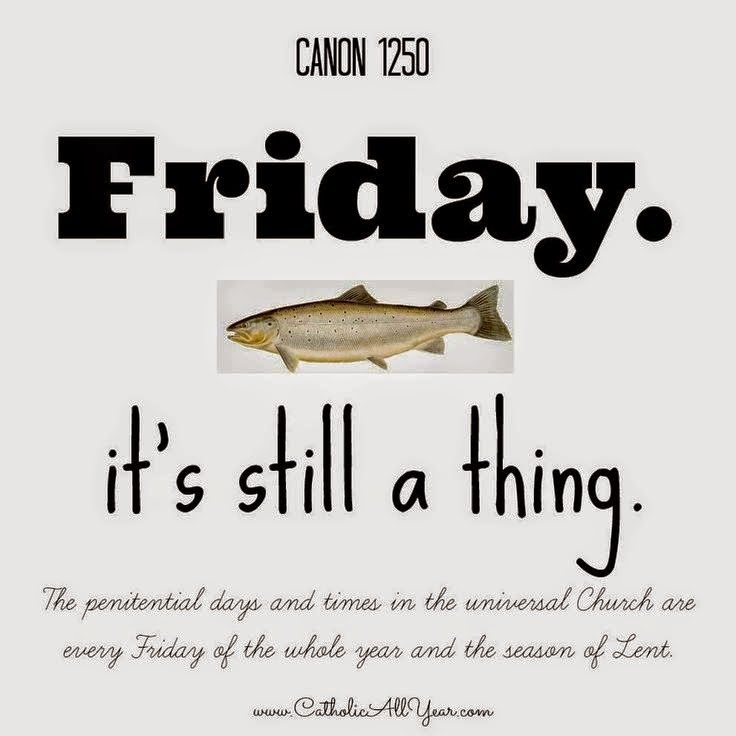Today in the Franciscan Calendar is the Feast of All Franciscan Saints. In honor of this special Feast, let us pray the Litany of All Franciscan Saints.
Lord, have mercy.
Lord, have mercy.Christ, have mercy.
Christ, have mercy.Lord, have mercy.
Lord, have mercy.God, the Father,
have mercy on us.God, the Son,
have mercy on us.God, the Holy Spirit,
have mercy on us.Holy Trinity, one God,
have mercy on us.Holy Mary, the Immaculate Conception, Queen of the Franciscan Order,
pray for us.Holy Father Francis,
pray for us.All you holy martyrs of the Franciscan Order,
pray for us.Saints Berard, Accursius, Adjutus, Otto, and Peter, Protomartyrs,
pray for us.Saints Daniel, Angelo, Domnus, Hugolinus, Leo, Nicholas, and Samuel, Martyrs of Africa,
pray for us.Saints Nicholas Tavelic, Deodat of Aquitaine, Peter of Narbonne, and Stephen of Cuneo, Martyrs of the Holy Land,
pray for us.Saint Thomas More, Martyr of England,
pray for us.Saints
Nicholas Pick, Anthony Hornaer, Anthony of Weert, Cornelius, Francis,
Godfrey, Jerome, Nicasius, Peter, Theodoric, Willehad, Martyrs of
Holland,
pray for us.Saints Peter Baptist Blasquez, Martin
de Aguirre, Francis Blanco, Philip of Jesus of Mexico, Gonzalo García of
India, and you holy seventeen Japanese members of the Third Order,
Saints Anthony of Nagasaki, Bonaventure, Cosmas, Francis of Fahelante,
Francis of Miyako, Gabriel, Joachim, John, Leo, Louis, Matthias,
Michael, Paul Ibaraki, Paul Zuzuki, Peter, Thomas Danki, and Thomas
Kosaki, Protomartyrs of Japan,
pray for us.Saints John Jones and John Wall, Martyrs of England,
pray for us.Saints Fidelis of Sigmaringen, Protomartyr of the Sacred Congregation of the Propagation of the Faith,
pray for us.Saint Maximilian Kolbe, Martyr of Auschwitz,
pray for us.All you holy priests of the First Franciscan Order,
pray for us.Saint Anthony of Padua, Doctor of the Gospel and Wonderworker,
pray for us.Saint Bonaventure, Seraphic Doctor,
pray for us.Saint Benvenute of Osimo, Bishop,
pray for us.Saint Louis of Tolouse, Bishop,
pray for us.Saint Bernardine of Siena,
pray for us.Saint John Capistran,
pray for us.Saint Peter Regalado,
pray for us.Saint James of the March,
pray for us.Saint Peter of Alcantara,
pray for us.Saint Francis Solano,
pray for us.Saint Joseph of Leonissa,
pray for us.Saint Lawrence of Brindisi, Doctor of the Church,
pray for us.Saint Joseph of Cupertino,
pray for us.Saint Pacificus of San Severino,
pray for us.Saint John Joseph of the Cross,
pray for us.Saint Theophilus of Corte,
pray for us.Saint Leonard of Port Maurice,
pray for us.Saint Leopold Mandic,
pray for us.All you holy lay brothers of the First Franciscan Order,
pray for us.Saint Didacus of Alcalá,
pray for us.Saint Salvator of Horta,
pray for us.Saint Felix of Cantalice,
pray for us.Saint Benedict the Black,
pray for us.Saint Paschal Baylon,
pray for us.Saint Seraphim of Montegranaro,
pray for us.Saint Charles of Sezze,
pray for us.Saint Ignatius Laconi,
pray for us.Saint Francis Camporosso,
pray for us.Saint Conrad of Parzham,
pray for us.

All you holy virgins of the Second Franciscan Order, pray for us.
Holy Mother Clare of Assisi, pray for us.
Saint Agnes of Assisi, pray for us.
Saint Colette of Corbie, pray for us.
Saint Catherine of Bologna, pray for us.
Saint Veronica Giuliani, pray for us.
All you holy priests of the Third Franciscan Order, pray for us.
Saint Yves of Brittany, pray for us.
Saint Charles Borromeo, pray for us.
Saint Joseph Benedict Cottolengo, pray for us.
Saint Vincent Palotti, Founder, pray for us.
Saint John Mary Vianney, Patron of Parish Priests, pray for us.
Saint Joseph Cafasso, pray for us.
Saint Michael Garicoits, pray for us.
Saint Peter Julian Eymard, Founder, pray for us.
Saint John Bosco, Founder, pray for us.
Saint Pius X, Pope, pray for us.
All you holy foundresses of religious congregations who were members of the Third Franciscan Order, pray for us.
Saint Bridget of Sweden, pray for us.
Saint Jane of Valois, pray for us.
Saint Angela Merici, pray for us.
Saint Mary Bartholomea Capitanio, pray for us.
Saint Mary Magdalen Postel, pray for us.
Saint Vincentia Gerosa, pray for us.
Saint Joachima de Mas y de Vedruna, pray for us.
Saint Mary Josepha Rossello, pray for us.
Saint Frances Xavier Cabrini, pray for us.
All you holy men of the Third Franciscan Order, pray for us.
Saint Ferdinand, King of Castile and Leon, pray for us.
Saint Louis, King of France, Patron of the Third Order, pray for us.
Saint Elzear of Sabran, pray for us.
Saint Roch of Montpellier, pray for us.
Saint Conrad of Piacenza, Hermit, pray for us.
All you holy women of the Third Franciscan Order, pray for us.
Saint Elizabeth of Hungary, Patroness of the Third Order, pray for us.
Saint Rose of Viterbo, Virgin, pray for us.
Saint Zita of Lucca, Virgin, pray for us.
Saint Margaret of Cortona, pray for us.
Saint Clare of Montefalco, Virgin and Religious, pray for us.
Saint Elizabeth of Portugal, pray for us.
Saint Joan of Arc, pray for us.
Saint Frances of Rome, pray for us.
Saint Catherine of Genoa, pray for us.
Saint Hyacintha Mariscotti, Virgin and Religious, pray for us.
Saint Mariana of Jesus of Quito, Virgin, pray for us.
Saint Mary Frances of the Five Wounds, Virgin, pray for us.
All you holy Cordbearers of St. Francis, pray for us.
Saint Francis de Sales, Bishop, pray for us.
Saint Joseph Calasanctius, Founder, pray for us.
Saint Benedict Joseph Labre, pray for us.
Saint Bernadette Soubirous, Virgin and Religious, pray for us.
Lamb of God, you take away the sins of the world, have mercy on us.
Lamb of God, you take away the sins of the world, have mercy on us.
Lamb of God, you take away the sins of the world, grant us peace.
Let us pray:
Almighty everlasting God, we thank You for granting us the joy of honoring our holy Father Francis and his sainted followers and enjoying the protection of their unceasing prayers. Grant us also the grace to imitate their example and so attain their fellowship in eternal glory. We ask this through Christ our Lord. Amen.























